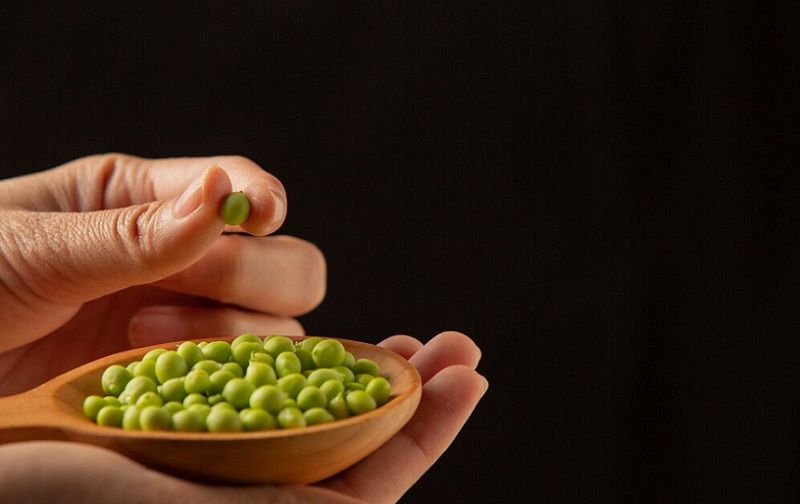Pea Protein Market Size to Grow USD 7.7 Billion by 2028 at a CAGR of 11.9%
Pea Protein Market is Segmented by Type (Low Purity Pea Protein Isolate (75%-80%), Medium Purity Pea Protein Isolate (80%-85%), High Purity Pea Protein Isolate (>85%)), by Application (Sports Nutrition Food, Energy Drinks, Health Food, Pet Food): Global Opportunity Analysis and Industry Forecast, 2024-2030. It is Published in Valuates Reports Under the Category of Nutrition.

The Global Pea Protein Market size is projected to grow from USD 1.7 Billion in 2022 to USD 7.7 Billion by 2028 at a CAGR of 11.9% during the forecast period.
Major Factors Driving the Growth of Pea Protein Market
The growing demand for plant-based proteins as a result of a global move to more sustainable and health-conscious diets is propelling the market for pea protein. Pea protein has become a popular option as customers seek plant-derived alternatives because of its full amino acid profile, allergen-free status, and adaptability.
Pea protein is widely used in food and beverage items due to the expansion of plant-based diets, veganism, and increased knowledge of its nutritional advantages and practical uses. Because pea protein satisfies consumer demands for minimally processed and environmentally friendly products, the industry is further boosted by the clean label and sustainable food movements.
Pea protein is becoming more and more popular as customers prioritize plant-derived alternatives for sustainability and health-related reasons. The market for pea protein is growing as a result of people's attraction to it as a full amino acid profile and as a flexible substitute for animal-based protein sources. Health-conscious people find pea protein to be a satisfying and allergy-friendly source of protein. The market takes advantage of this trend by increasing demand for food and beverage products fortified with pea protein as customers look for goods that support their health objectives.
The market for pea protein is growing due in large part to the rise in plant-based diets and the growing popularity of veganism. The popularity of plant-centric lifestyles, driven by ethical, environmental, and health considerations, has increased demand for plant-based protein substitutes such as pea protein. For people who follow plant-based eating patterns, the market offers a sustainable and cruelty-free protein source in response to this expanding demographic. Pea protein is in line with the clean label and sustainable food movements, which prioritize openness and eco-friendly methods. Pea protein appeals to customers who are looking for natural, minimally processed foods because of its eco-friendly farming and low processing. The market gains from the link with clean-label products, drawing in customers who value eating sustainably and who are concerned about the environment.
Major Factors Driving the Growth of Pea Protein Market
The growing demand for plant-based proteins as a result of a global move to more sustainable and health-conscious diets is propelling the market for pea protein. Pea protein has become a popular option as customers seek plant-derived alternatives because of its full amino acid profile, allergen-free status, and adaptability.
Pea protein is widely used in food and beverage items due to the expansion of plant-based diets, veganism, and increased knowledge of its nutritional advantages and practical uses. Because pea protein satisfies consumer demands for minimally processed and environmentally friendly products, the industry is further boosted by the clean label and sustainable food movements.
Pea protein is becoming more and more popular as customers prioritize plant-derived alternatives for sustainability and health-related reasons. The market for pea protein is growing as a result of people's attraction to it as a full amino acid profile and as a flexible substitute for animal-based protein sources. Health-conscious people find pea protein to be a satisfying and allergy-friendly source of protein. The market takes advantage of this trend by increasing demand for food and beverage products fortified with pea protein as customers look for goods that support their health objectives.
The market for pea protein is growing due in large part to the rise in plant-based diets and the growing popularity of veganism. The popularity of plant-centric lifestyles, driven by ethical, environmental, and health considerations, has increased demand for plant-based protein substitutes such as pea protein. For people who follow plant-based eating patterns, the market offers a sustainable and cruelty-free protein source in response to this expanding demographic. Pea protein is in line with the clean label and sustainable food movements, which prioritize openness and eco-friendly methods. Pea protein appeals to customers who are looking for natural, minimally processed foods because of its eco-friendly farming and low processing. The market gains from the link with clean-label products, drawing in customers who value eating sustainably and who are concerned about the environment.
Key News of the Week











